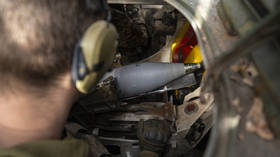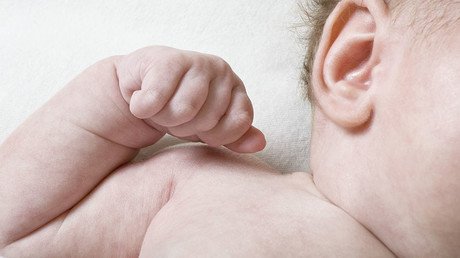Scientists clone primates for 1st time, are humans up next? (PHOTOS, VIDEOS)
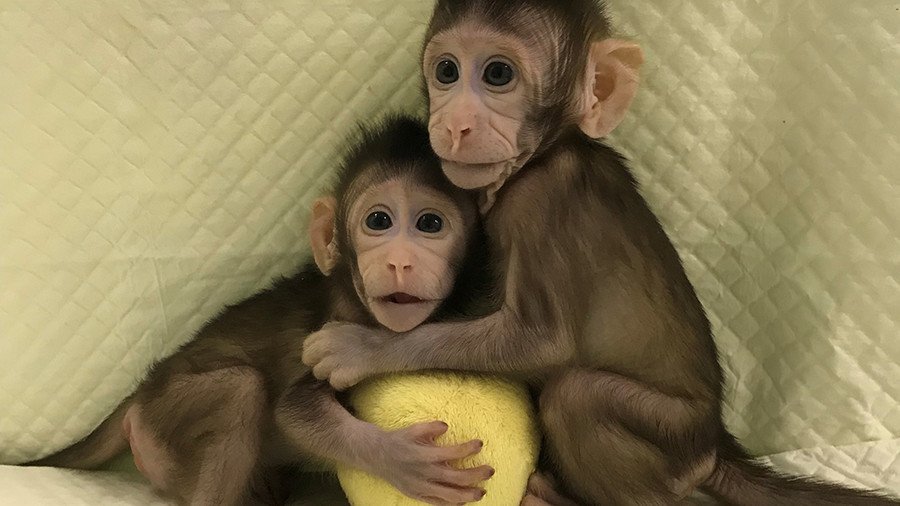
Chinese scientists have successfully cloned two macaque monkeys in a groundbreaking move which could improve disease research while also throwing open the possibility of human cloning, however unlikely or illegal.
"Humans are primates. So (for) the cloning of primate species, including humans, the technical barrier is now broken," Muming Poo, one of the supervisors of the program, told reporters in a conference call, as cited by NBC News. "The reason ... we broke this barrier is to produce animal models that are useful for medicine, for human health. There is no intention to apply this method to humans."
The team from the Chinese Academy of Sciences Institute of Neuroscience in Shanghai replicated the cloning technique that produced Dolly the sheep, which was born in 1996. Close to two dozen types of mammals including dogs, cats, pigs, and cows have been cloned using the same technique – but scientists always struggled with primates, until now.
Zhong Zhong and Hua Hua, the two identical long-tailed macaques were born eight and six weeks ago, respectively, as reported in the medical journal Cell Wednesday. They were cloned using a technique called somatic cell nuclear transfer (SCNT), which involves transplanting the nucleus of a cell containing the DNA to be cloned into a hollowed out egg.
The team used a series of modulators to switch on or off specific genes that were inhibiting the embryos development. The SCNT method only worked when nuclei were transferred from fetal cells as opposed to adult ones, as was the case with Dolly the sheep. It took a total of 127 eggs and 79 embryos to produce the two live macaque births. For context, researchers at the Roslin Institute in Scotland cloned Dolly the sheep from the udder cell of an adult sheep after 276 attempts.
Genetic tests confirm that Zhong Zhong and Hua Hua really are duplicates and both are currently being bottle fed and are growing normally.
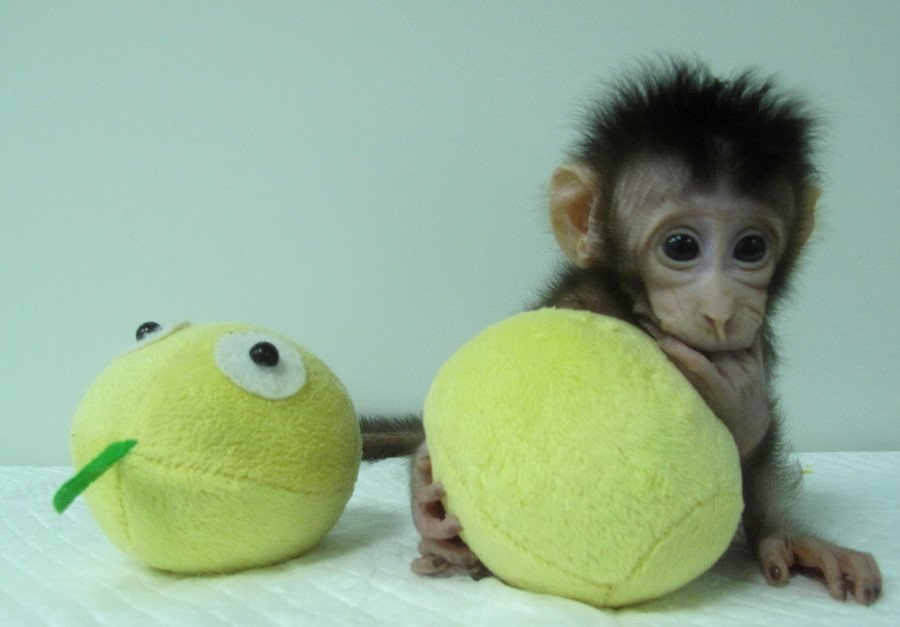
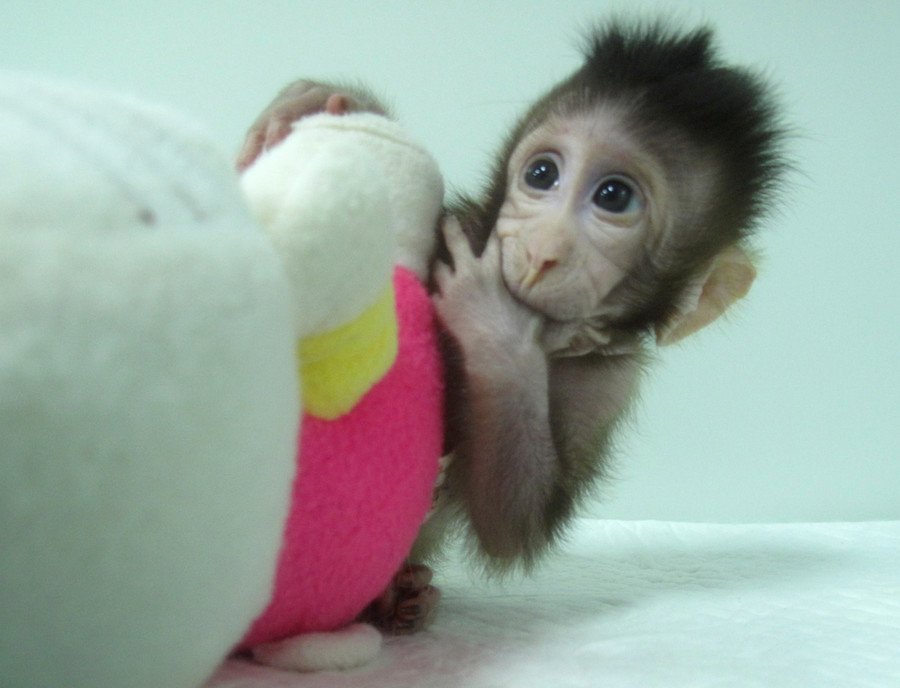
The scientists claim that it will afford medical researchers the opportunity to study diseases in groups of genetically identical monkeys as genetic variability can complicate experiments and drug trials.
President of Chinese Academy of Sciences Bai Chunli said: "We used to have a breeding centre that would supply us with monkeys, however if their backgrounds are different, if their parentage is different, then their genetic background is not identical. So when you do these biological experiments, the outcomes also wouldn't be the same. In the case of using cloned monkeys as experimental animals, their genetic background will be the same. So they are very good for experiments.”
Scientists re-clone 1st cloned dog to see what happens https://t.co/YtVT17Xl8Xpic.twitter.com/vxq246j9CI
— RT (@RT_com) November 23, 2017
People for the Ethical Treatment of Animals (PETA) has strongly condemned the experiments, however.
“Cloning is a horror show: a waste of lives, time and money — and the suffering that such experiments cause is unimaginable,” PETA Senior Vice President Kathy Guillermo said in a statement, as cited by NBC News. “Because cloning has a failure rate of at least 90 percent, these two monkeys represent misery and death on an enormous scale.”
"The work in this paper is not a stepping-stone to establishing methods for obtaining live born human clones. This clearly remains a very foolish thing to attempt."
There are a multitude of ethical objections to the practice of cloning, especially any hypothetical attempts at cloning humans. There is an extraordinarily high rate of failure required to produce such a small number of ostensibly healthy subjects. There are also questions regarding identity and human rights, particularly in the event that a human clone were to reach adulthood.
Like this story? Share it with a friend!






